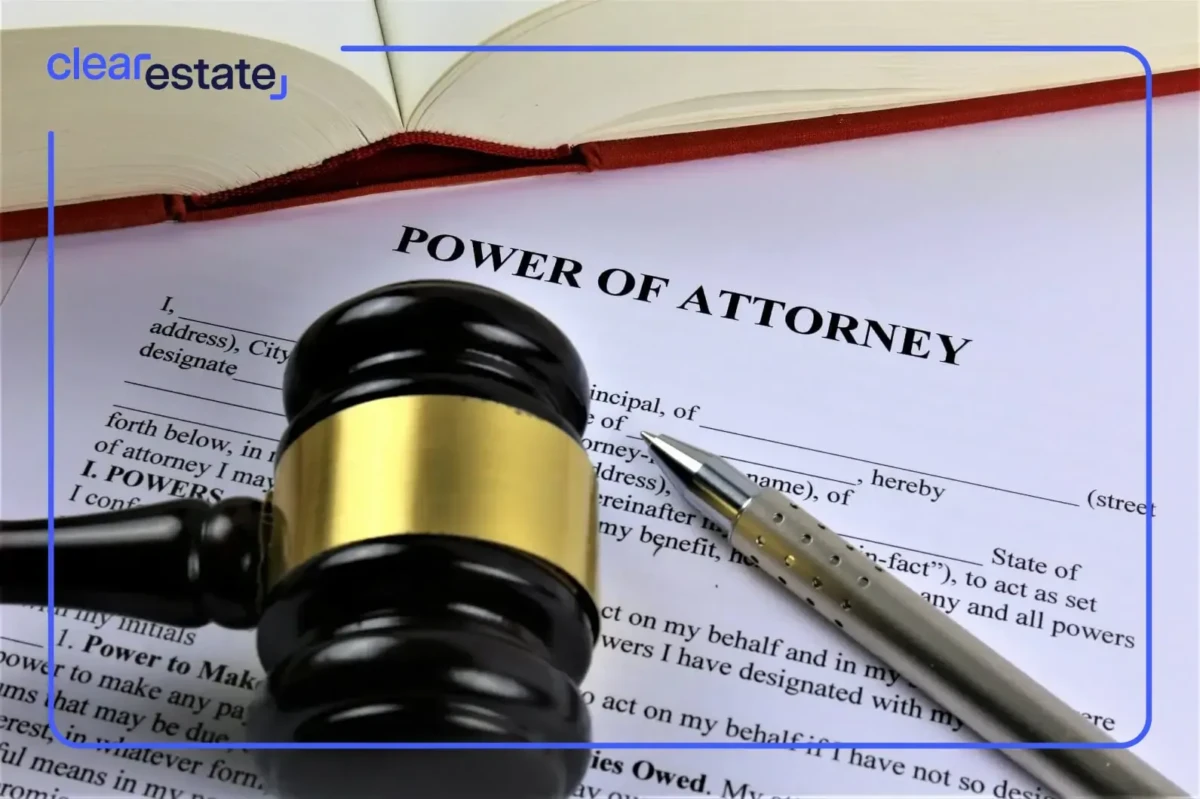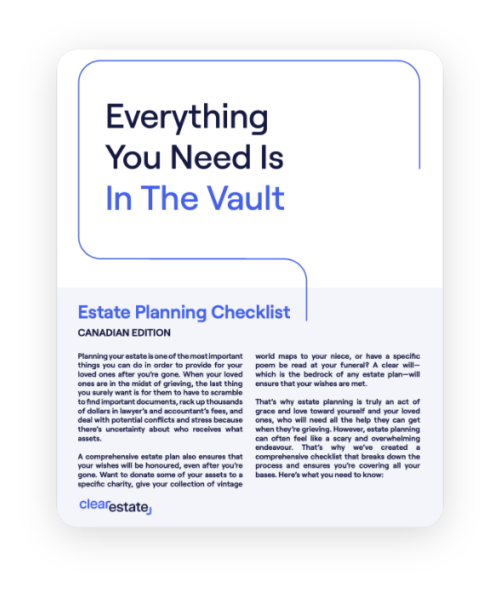Estate Planning
Oct 27, 2025
Introducing Empathy to Estate Bureaucracy
ClearEstate’s origin story: how grief, inefficiency, and compassion inspired Alex to build a fintech that brings empathy and efficiency to estate planning and settlement
A power of attorney is a legal estate planning document that grants another person the power to take action on your behalf.


Sound decision making can be impacted by a number of ailments. Whether it’s a disease like dementia, a traumatic brain injury, or another debilitating disorder, there is a great deal of uncertainty surrounding these conditions. To exert a greater sense of control over the future, many people opt to create a power of attorney (POA). A POA grants you the ability to grant another person you trust to make crucial legal decisions on your behalf when you are no longer able to do so.
Here's everything you need to know about a general power of attorney.
We regularly share relevant information about wills and estates.
A power of attorney is a legal estate planning document that grants another person the power to take action on your behalf. You can think of a POA as a way to appoint a decision-maker who takes your place when you no longer possess the mental capacity to act on your own. Creating a POA is a decision that you make privately, and it is also a relatively affordable process.
In most cases, a POA appointee has three main roles. These include the following:
The specific responsibilities of a POA appointee can vary widely, and they may include anything from paying bills to selling property.
If you want to make sure that your POA lasts even if you’re strongly incapacitated or pass away, then you may choose to create an enduring or continuing power of attorney, which means the POA continues to be effective even if you lose your mental capacity as the grantor. If you don’t have an enduring or continuing power of attorney, then the question as to who is allowed to make decisions on your behalf once you’re no longer able to do so becomes tricky.
Choosing to assign a power of attorney can lead to a wide range of benefits. Here are some of the most significant advantages of designating a POA.
Assigning a POA in advance can help you cut down on time and expenses. If you fail to create a POA ahead of time, your loved ones may be left with no other choice but to go to court to designate a guardian. Not only does this option deprive you of the privacy and self-determination of a POA, but it's also notoriously costly and time-consuming.
Whether you opt for a general power of attorney or a continuing POA, this decision allows your loved ones to openly discuss their expectations and desires with you. By taking the time to understand what your family members hope for, you can ensure that your estate planning process meets everyone’s specific goals and wishes. This also helps prevent any miscommunication from taking place later on.
Creating a POA also minimizes stress and worry for both you and your loved ones. Once you appoint a decision-maker that you can trust, you save your family members from having to go through the lengthy and expensive process of going to court. In addition, there is a significant amount of confusion and misunderstanding that you clear up by taking care of the POA process ahead of time.
Before you assign a power of attorney, you first want to determine what the purpose of your POA is. For example, does your goal involve estate planning? Are you looking for someone to take care of other important business on your behalf? No matter what your intentions are, be sure to clearly outline them in your POA plan.
Next, it's crucial to find someone competent enough to place your trust in. A POA is something to be taken seriously, and you should only appoint someone you're confident will take over your responsibilities the way you want them to. This will help ensure that your POA is as effective as possible.
If you’re establishing an enduring or continuing power of attorney, a third party will need to attest to the fact that you’re creating this POA while still within your full mental capacities. Only then can the POA stand even once you’re no longer capable of making decisions for yourself.
These guidelines can boost your chances of successfully completing the POA process as the grantor. Remember to do what you know is best for you and select an appointee that you can trust. This will help give you peace of mind throughout the process of creating a power of attorney.
 Secure Your Legacy
Secure Your Legacy
Get your free 12-step Estate Planning checklist now. 89% of readers complete their estate plan within 3 months of using our guide.
Instantly Access Now